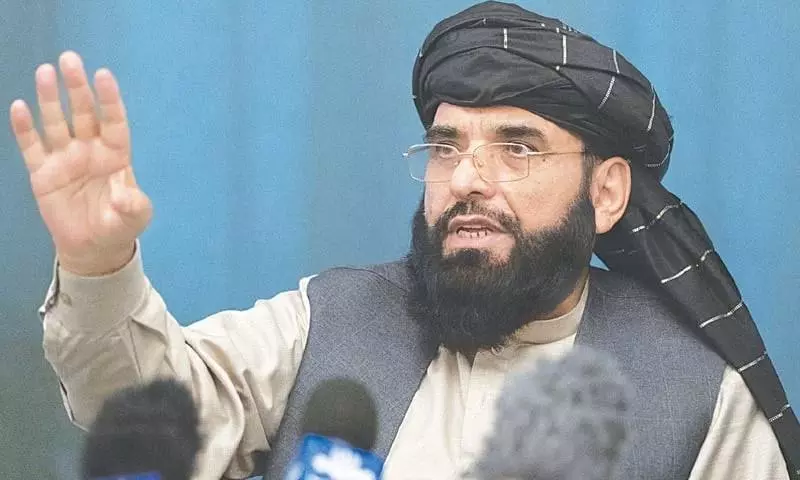
All the persecuted irrespective of religion to be included in the CAA: Taliban
text_fieldsIn response to India’s implementation of the contentious Citizenship (Amendment) Act (CAA), the Taliban government in Afghanistan reminded that such a law should include all kinds of people who are being persecuted irrespective of their religion.
Suhail Shaheen, head of the Taliban's political office in Doha, emphasized the need for inclusive laws while denying allegations of minority persecution in Taliban-ruled Afghanistan, according to a report published in The Wire.
Shaheen's remarks come amidst the backdrop of India's CAA, which aims to expedite citizenship for persecuted minorities from neighbouring Muslim-majority countries. However, critics argue that the law excludes Muslims and has a cut-off date of December 31, 2014, which raises concerns about inclusivity.
The Taliban's stance, articulated by Shaheen, advocates for laws that protect all individuals regardless of religion. Despite asserting that minorities like Sikhs and Hindus in Afghanistan face no persecution, Shaheen urged equal treatment for all minorities, including Muslims in India.
India's diplomatic engagements with the Taliban government in Kabul have intensified, despite not granting it full diplomatic recognition. The Indian government has dispatched diplomats to Afghanistan and even sent a technical team to assess infrastructure projects. This growing engagement underscores India's evolving relationship with the Taliban amid shifting geopolitical dynamics.
Shaheen's comments also shed light on historical persecution in Afghanistan under previous regimes. While acknowledging past injustices, he contends that the current Taliban government upholds minority rights and religious freedom.
India, however, has a different perspective, citing historical instances of persecution under previous Taliban regimes.
The plight of Afghan Sikhs and Hindus has been a focal point, particularly after the 2022 Gurudwara attack claimed by the Islamic State in Khorasan Province (ISKP). Despite assurances from the Taliban, many Afghan Sikhs and Hindus have sought refuge abroad, citing security concerns and pending citizenship applications.
Guljeet Singh, a social worker assisting Afghan Sikh refugees in Delhi, highlights the challenges faced by the community. While some have returned to Afghanistan to reclaim their properties, others remain wary due to the militarized environment and ongoing security threats.
The United Nations' latest report on Afghanistan highlights restrictions on women and children, as well as the marginalization of minorities, albeit without detailed elaboration. The report underscores the complex socio-political landscape in Afghanistan, where sectarian attacks by groups like ISKP continue to target minority communities.























